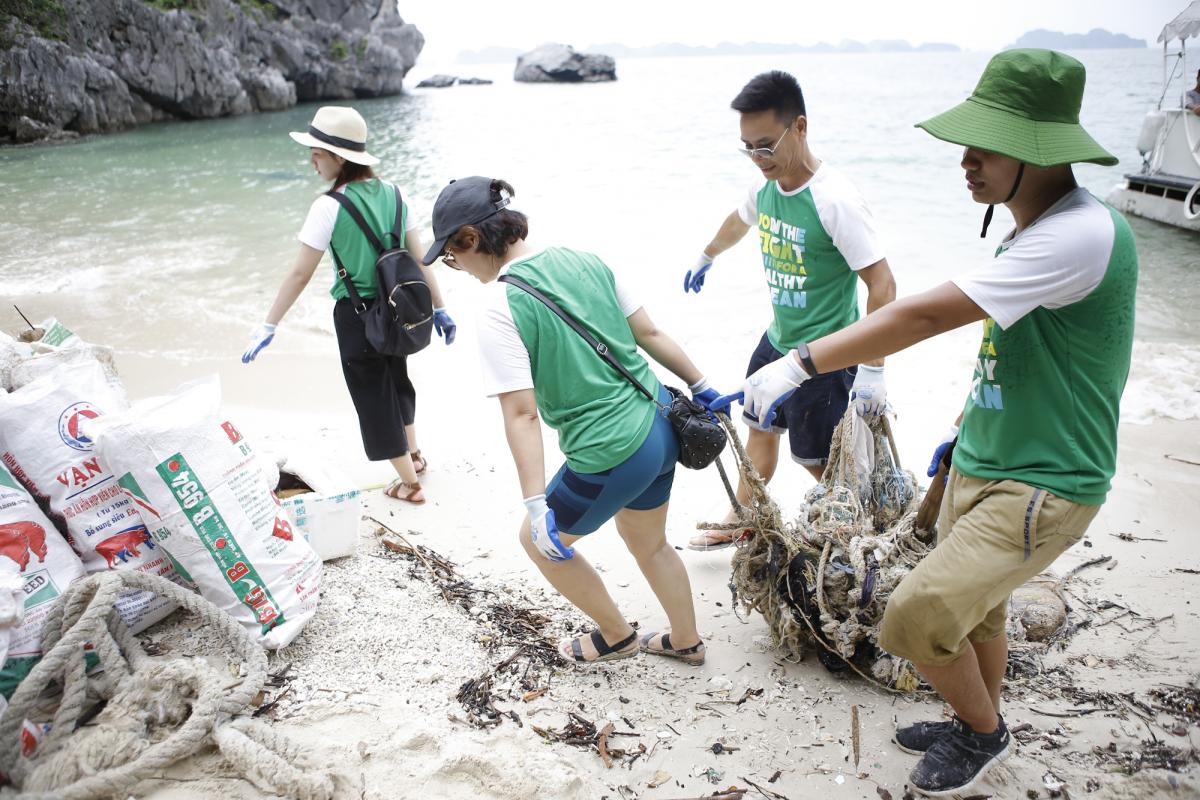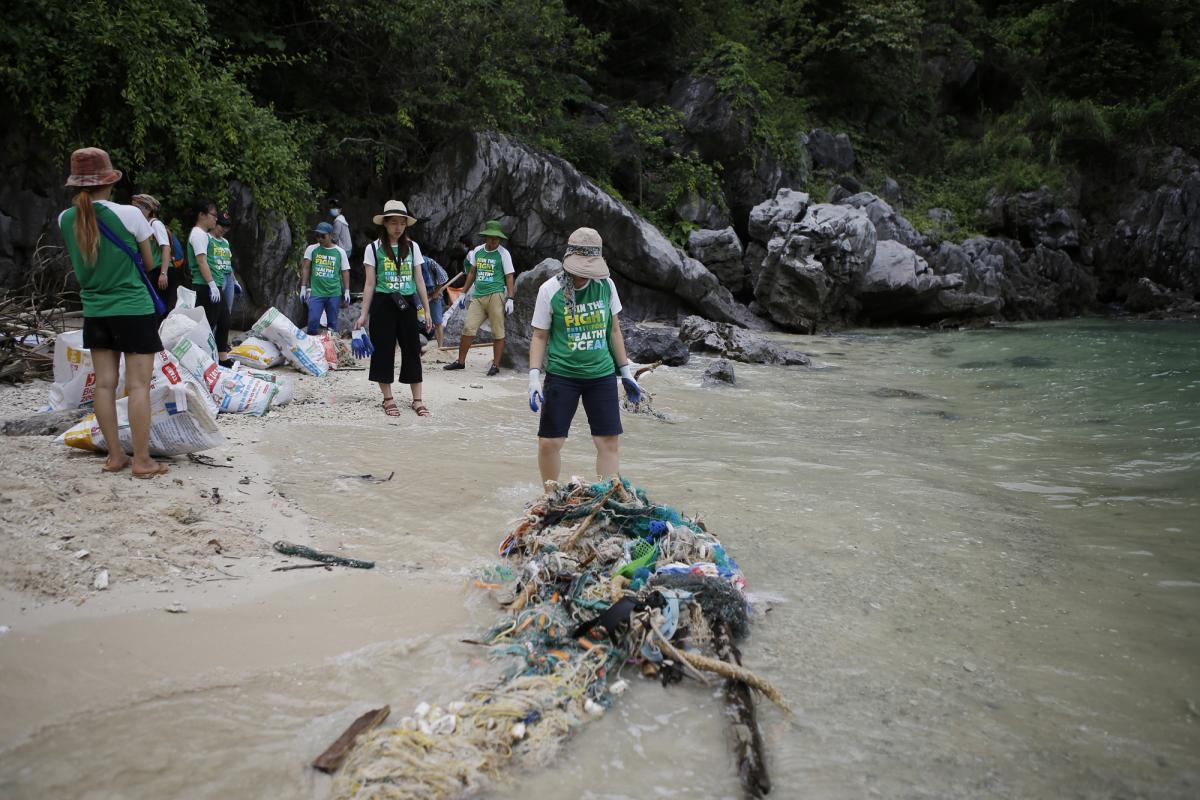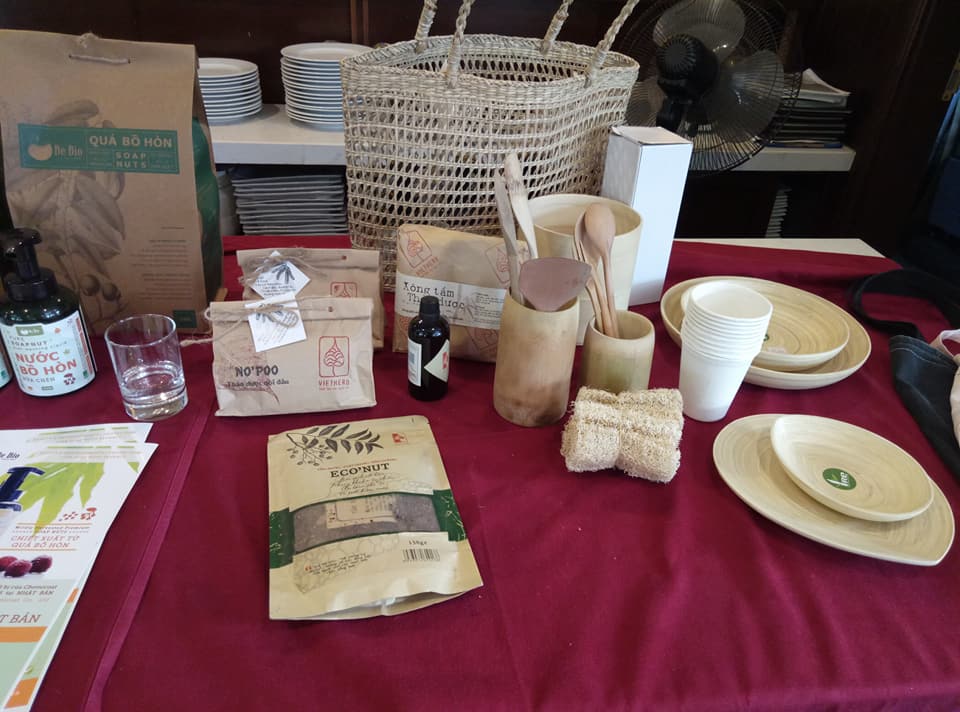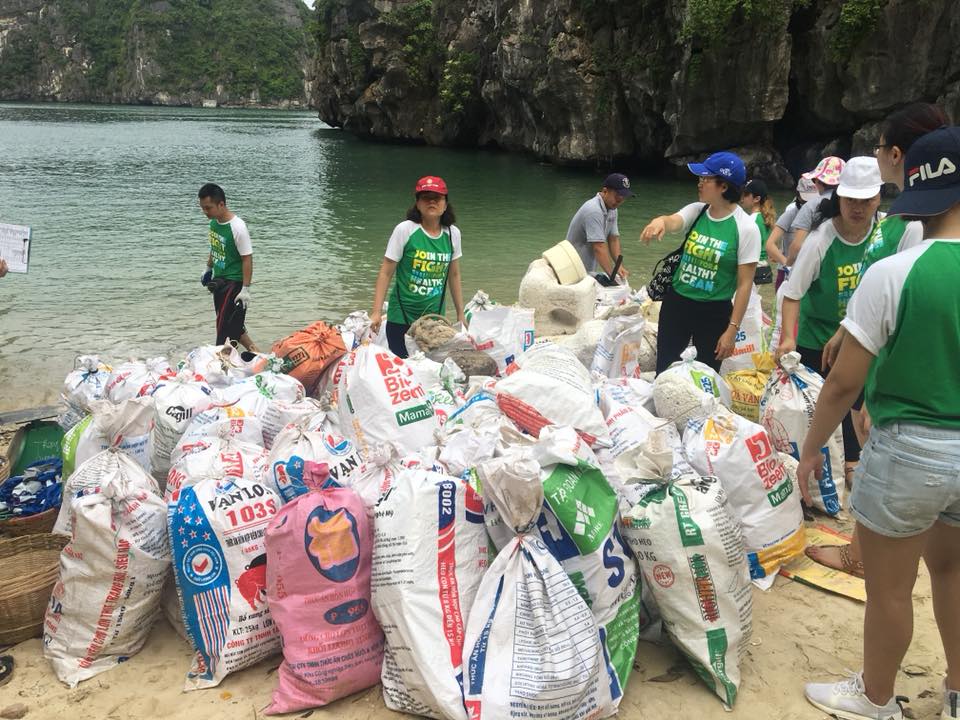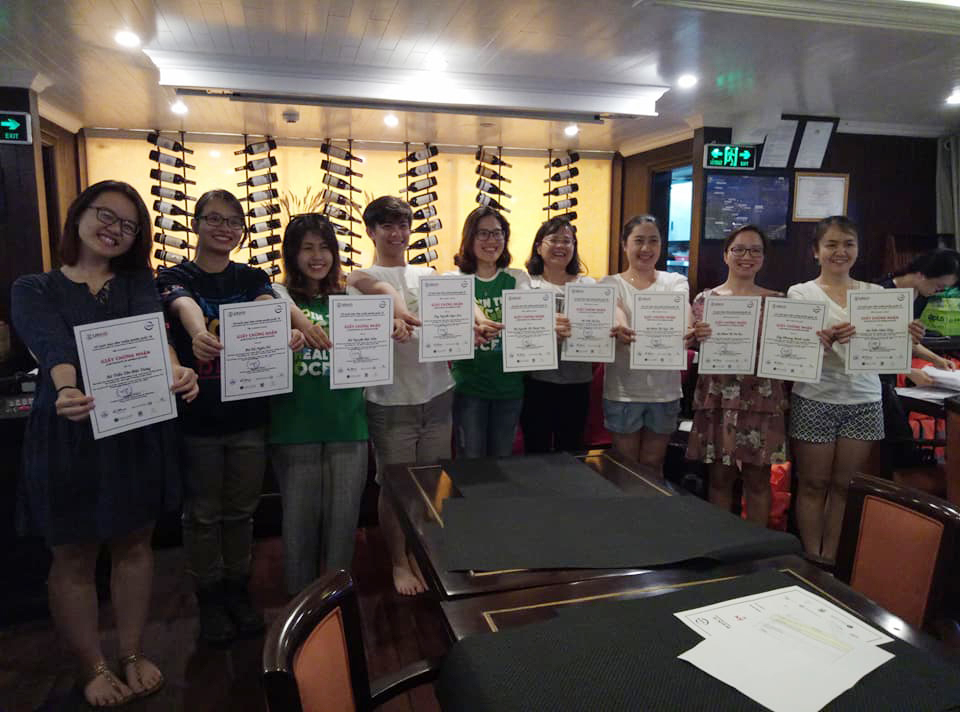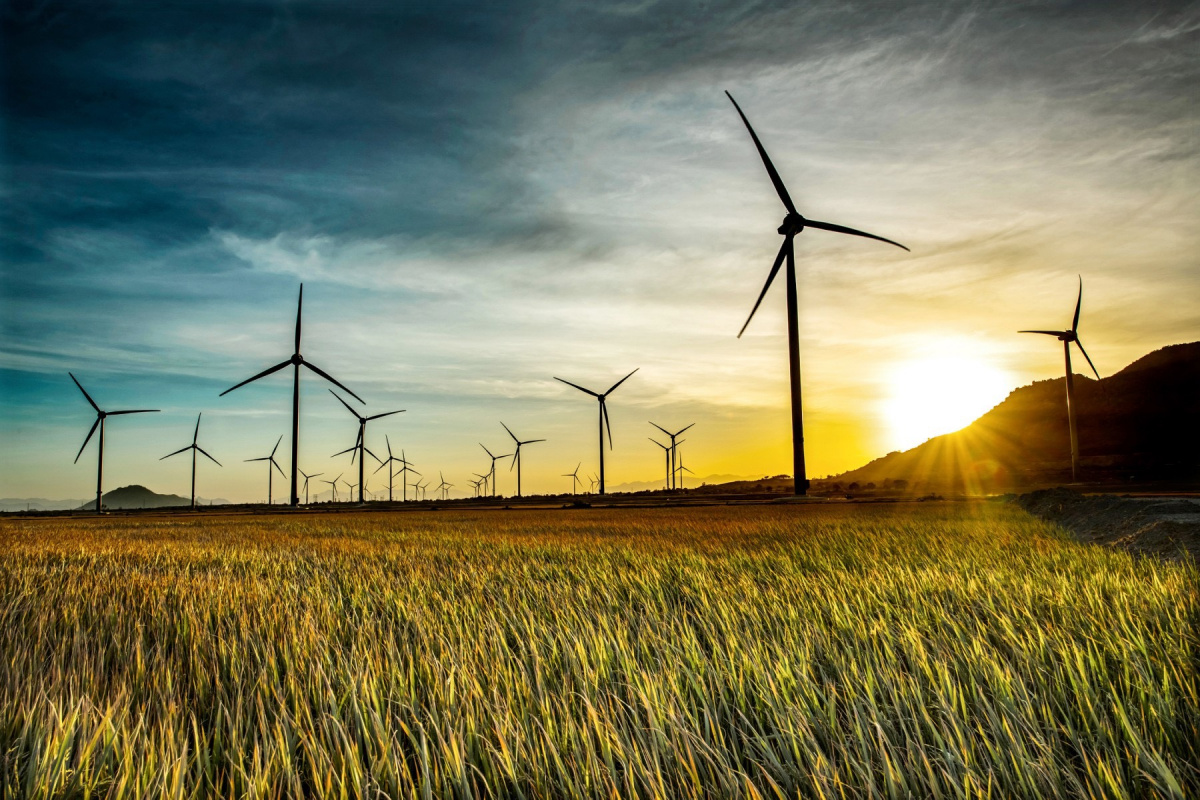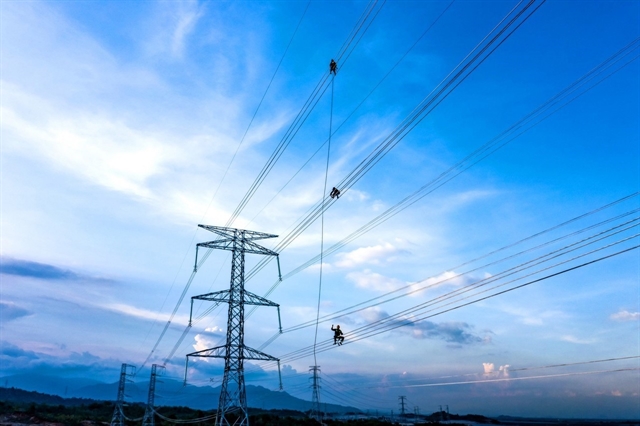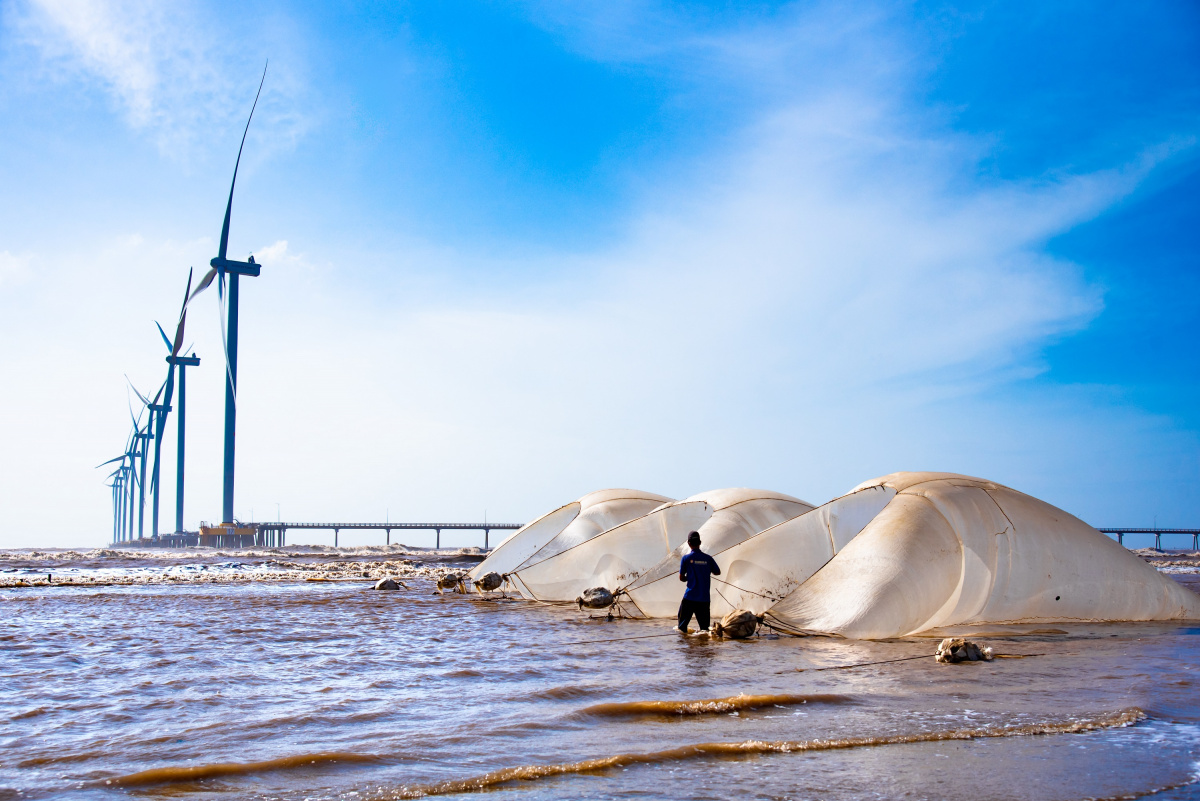Zero waste programme: mutual benefits for both the environment and the private sector
Through the Ha Long-Cat Ba Alliance (HLCBA), a USAID funded initiative to address the environmental problems in Ha Long Bay and Cat Ba Archipelago, IUCN and its partners are influencing the business sector, especially boat cruises and travel agents, to raise awareness on the importance of reducing plastic waste pollution, and to promote responsible business practices.
Ha Long Bay is one of Viet Nam’s top tourist attraction sites, with more than 500 boats cruising the bay per day, catering to around four million tourists per year.
Three recent coastal cleanups and trash audits organised by IUCN in Ha Long in 2016 and 2017 revealed some shocking figures: a total of around 2.2 tons of trash are collected in a six-hour timespan; 90% of the trash are single-use non-recycle plastics; and polystyrene makes up 70-80% of the total amount of trash collected.
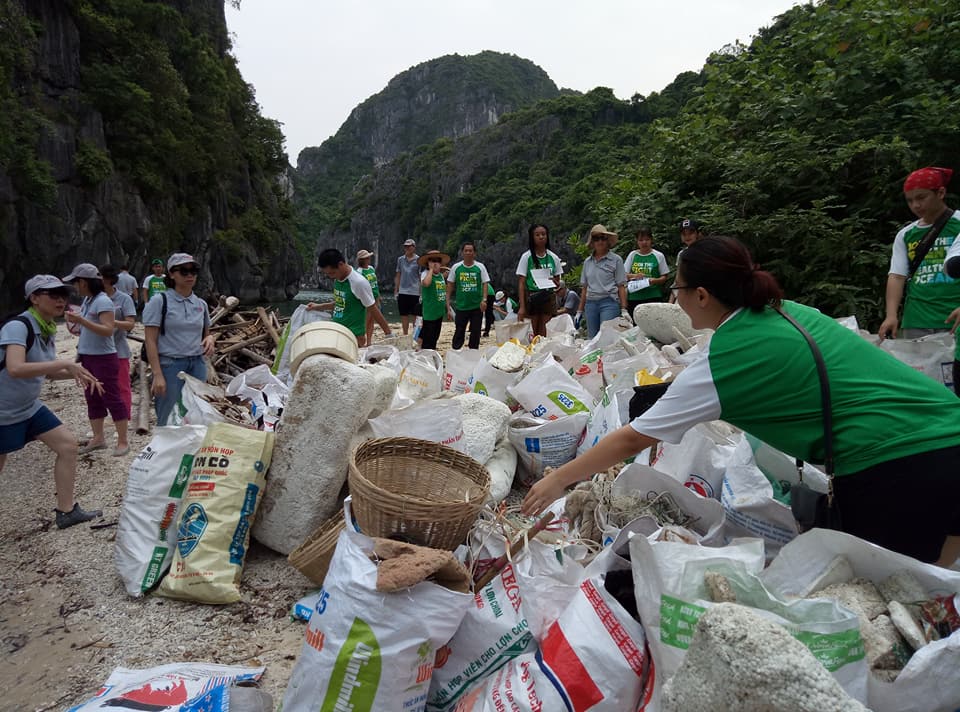 Photo: The majority of trash collected are polystyrene and single use non-recyclable plastics © IUCN Viet Nam
Photo: The majority of trash collected are polystyrene and single use non-recyclable plastics © IUCN Viet Nam
After clearing trash from beaches, the cleanup team would return, only to find that there’s more trash to be collected. This has left a bad impression on tourists.
It has been observed that tourism and hospitability sectors are contributing to marine plastic pollution in Ha Long Bay. This poses a practical question for the Alliance team: What can be done to reduce plastic waste from tourism activities in Ha Long Bay?
The response was the creation of the “Zero waste programme” organized by IUCN, Bhaya Group, Greenhub and Live & Learn, as part of the Ha Long Cat Ba alliance, on June 14. The event introduced the “zero waste to landfill” concept, whereby the aim is to cut down waste at the source. The event also introduced single-use plastic alternatives for the tourism sector, and trained companies to sort trash. Sorting trash is the first step to understanding the types, origins and composition of discharged waste before designing appropriate zero waste policies for businesses.
“I am shocked by the amount of trash, especially polystyrene, generated. Today’s experience has been very meaningful and rewarding,” said an Intrepid company staff, who volunteers with the IUCN zero waste programme.
The programme also introduced environmentally friendly products made in Viet Nam, that companies could use to replace amenities such as: bamboo toothbrushes; straws made of inox, bamboo and dried grass; organic soaps, shampoos, and detergents; lunch box sets made of maize waste rather than foam; personal drinking water bottles; and bio-degradable plastic bags.
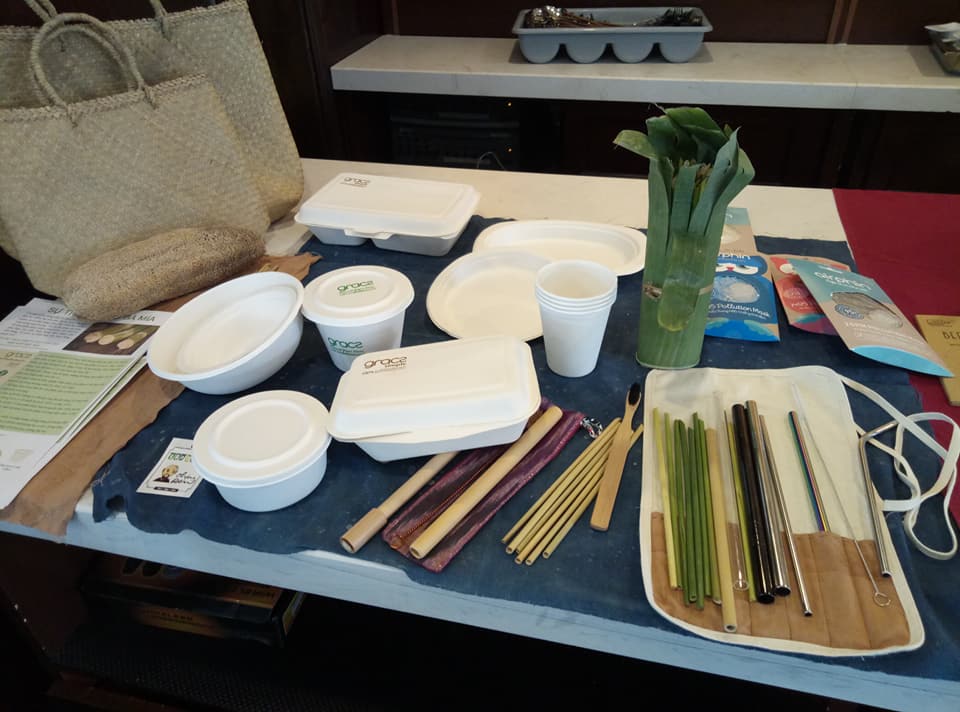 Photo: Environmentally benign products introduced by the programme © IUCN Viet Nam
Photo: Environmentally benign products introduced by the programme © IUCN Viet Nam
Using such products can contribute to the reduction of tour companies’ plastic footprints. After the event, at least three companies, including Bhaya Cruise, Intrepid and La Regina, committed to changing the way they operate, by purchasing eco-friendly products. Other companies realised the importance of reducing plastic waste in their operations and currently also plan on purchasing eco-friendly products.
The “Zero waste programme” is not merely a Corporate Social Responsibility initiative. It also brings financial benefits for companies, as they are able to resell recyclables, reduce their company’s footprint, and ultimately build a good reputation for their businesses.
Addressing plastic waste pollution requires the involvement of all stakeholders undertaking holistic approaches in managing product life cycles. Environmental responsibility brings benefits for companies and the environment in the long run.
